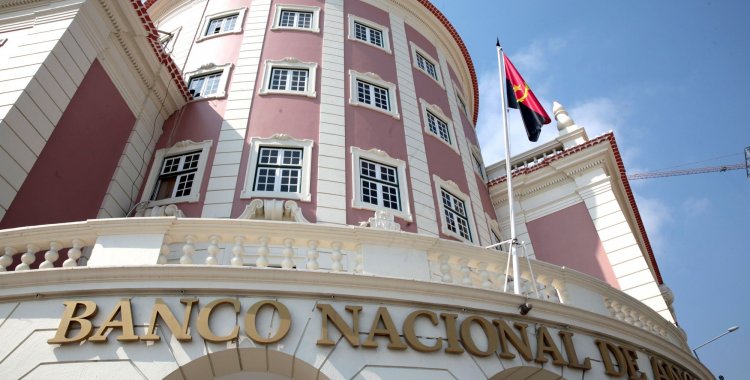"We expect the central bank to have room to cut the interest rate by another 50 to 100 basis points at the November meeting", write Oxford Economics analysts, commenting on the decision of the National Bank of Angola to lower the reference rate by 20 percent to 19.5 percent in September, the first drop since 2019.
"In sharp contrast to most other central banks that are in a cycle of monetary tightening due to rising inflation, the BNA has reduced its benchmark interest rate; we expect inflation to continue to gradually decline to 17.8 percent in December, not only thanks to the base effect, but also to VAT and the slowdown in the growth rates of the monetary and credit aggregates, in addition to the appreciation of the kwanza exchange rate", write the analysts in the commentary, sent to investors and to which Lusa had access.
Since September of last year, Angola's national currency has appreciated 39 percent against the dollar, recovering from several years of devaluation, following the partial exchange rate liberalization enacted by the BNA at the end of 2017.
In addition to Oxford Economics, analysts at Fitch Solutions, a consultancy owned by the same owners of the financial rating agency Fitch Ratings, estimate that the central bank will continue to lower interest rates, in line with the reduction in inflation in the second largest oil producer in sub-Saharan Africa.
"We anticipate that the central bank of Angola will further cut the key interest rate, to 18 percent at the end of this year and 17 percent by the end of 2023, in a context in which inflation continues to decelerate and economic growth slows down in 2023", reads the comment that Lusa had access to.
For these analysts, "the most recent monetary policy decision mainly reflects the appreciation of the kwanza, which contributed to a slowdown in inflation, which dropped from 27.2 percent in January to 19.8 percent in August, and should reach at 18 percent by December, to an annual average of 20 percent in 2022", falling further in 2023, to 14 percent.
Thus, they conclude, there is scope for the BNA "to cut another 100 basis points, to 17 percent, by the end of 2023, in a context in which headwinds coming from the oil sector cause a slowdown in growth to 1.8 percent in the next year".
The central bank of Angola decided last Monday to reduce the benchmark interest rate from 20 percent to 19.5 percent, citing the slowdown in inflation and the appreciation of the national currency, the kwanza.
"Considering the consistency of the slowdown in the evolution of prices in the national economy, particularly since the beginning of the current year, as a result of the continuous and rigorous control of liquidity, the appreciation of the kwanza in relation to the main currencies used in transactions with foreign countries and the increase in the supply of essential goods for widespread consumption, the National Bank of Angola [BNA] believes that conditions are met for the reduction of the key interest rate", announced the financial regulator, at the end of the monetary policy committee meeting.
At the meeting, the bankers decided to "reduce the Basic Interest Rate from 20 percent to 19.5 percent, reduce the Permanent Liquidity Lending Facility interest rate from 23 percent to 21 percent and keep the interest rate unchanged Permanent Liquidity Absorption Facility interest at 15 percent."
In addition to the economic environment in Angola, the decision also took into account "the external context and inherent risks, given the exposure of the Angolan economy to the oil sector and the weight of imported foodstuffs in the basket of supply to the domestic market", it reads in the statement released last week, which maintains the forecast for inflation to fall to single digits in the medium term.







